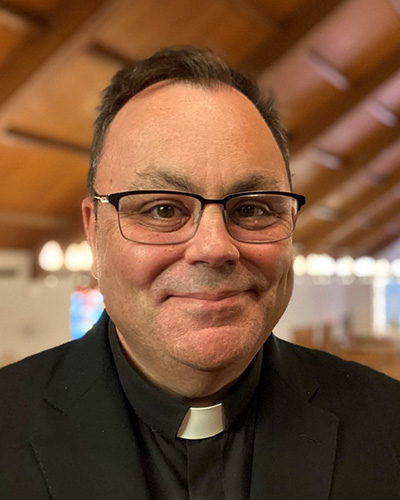“How could we sing a song of the LORD in a foreign land? If I forget you, Jerusalem, may my right hand be forgotten!” Psalm137, verses 4-5
“Whoever, therefore, among you belongs to any part of his people, let him go up, and may his God be with him!” 2 Chronicles 36:23b
Unlike typical historical writing where factual accuracy and impartiality of judgment are expected, biblical history is less concerned with reporting in precise detail all the facts of a situation. Its greater focus is on drawing out the meaning of those facts. Biblical history is primarily interpretative, and its purpose is to disclose the action of the living God in human affairs. Both the psalmist and the chronicler of the first reading are speaking from the context of a people who had experienced exile and the barrenness of the destroyed Kingdom of Israel. The psalmist offers a perspective from within the exile, and the chronicler depicts the words of freedom which bring the exile to a close, granting the possibility of new life.
In the reading of these passages, we might be like the psalmist, deep in desolation, yet we remember the good God has done and we find hope. We may also be like the chronicler who sees captivity coming to an end and the hope for new life. Through the practice of Lenten disciplines, some of us may have noticed a conversion within themselves. Perhaps, having passed the halfway point of Lent, we see ourselves moving from desolation to anticipation of a renewed self.
Perhaps, though, we are feeling stuck, we see no progression in our spiritual life. In that case, it may be necessary to revisit the Lenten disciplines of prayer, fasting and almsgiving. St. Peter Chrysologus, a bishop of the 5th century, spoke of the Lenten disciplines in the following way:
- Prayer knocks at the door, fasting obtains, mercy receives. Prayer, mercy and fasting: these three are one, and they give life to each other.
- Fasting is the soul of prayer; mercy is the lifeblood of fasting. Let no one try to separate them; they cannot be separated. If you have only one of them or not all together, you have nothing. So if you pray, fast; if you fast, show mercy; if you want your petition to be heard, hear the petition of others. If you do not close your ear to others, you open God’s ear to yourself.
- When you fast, see the fasting of others. If you want God to know that you are hungry, know that another is hungry. If you hope for mercy, show mercy. If you look for kindness, show kindness. If you want to receive, give. If you ask for yourself what you deny to others, your asking is a mockery.
- Fasting bears no fruit unless it is watered by mercy. Fasting dries up when mercy dries up. Mercy is to fasting as rain is to the earth. However much you may cultivate your heart, clear the soil of your nature, root out vices, sow virtues. If you do not release the springs of mercy, your fasting will bear no fruit.
- When you fast, if your mercy is thin, your harvest will be thin; when you fast, what you pour out in mercy overflows into your barn. Therefore, do not lose by saving, but gather in by scattering. Give to the poor, and you give to yourself.
If you are not seeing the Lenten progression you hoped for and still find yourself in the desolation of sin, I invite you to pray with these words of this great saint and preacher.
The Fourth Sunday of Lent bears the title “Laudate,” which means praise. For what are we giving praise at this moment in the Lenten journey? As we draw closer to the celebrations of Holy Week and Easter, we are called to do two things. Amid the darkness of sin and the distance we may feel from God, we have a greater awareness of our need for a Savior, a Jesus to free us. Secondly, we are called to pray with eagerness for the coming realities of Easter. May we continue to scrutinize the isolation and desolation that sin has brought, while slowly building hopeful expectations of the celebration of new life in the Resurrection of the Lord.
LENTEN MONDAYS – We continue our Lenten Mission this Monday and welcome Monsignor Jim Vlaun, the President and CEO of the Catholic Faith Network, as our presider and homilist.
Peace!

